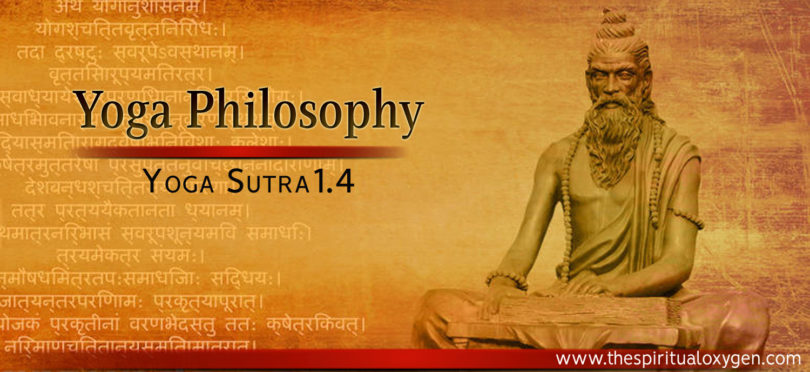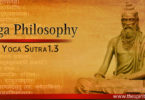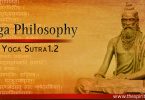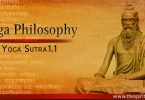In the previous sutras Patanjali states that, purpose of yoga is realisation of self (read – yoga sutra 1.3), which happens only when fluctuations of mind have dissolved in its origin (read – yoga sutra 1.2). We become aware of the self at a time when we have transcended all the levels of the mind. However, at the other times (when mind is filled with thoughts – yoga sutra 1.4), mind does not realise its real nature but still holds some type of identity.
What is that alternative identity which we hold to? At the time when we are not aware of our true nature than who are we? What happens to consciousness at the time of fluctuations? All these questions are answered here in the yoga sutra 1.4.
Yoga Sutra 1.4 – Cause of chaos
Yoga Sutra 1.4 deals with the question that if there is no stillness of the mind then what is our identity. Patanjali states that at the time of fluctuation, the self becomes identical to thoughts.
वृत्ति सारूप्यमितरत्र ॥४॥
vrtti sārūpyam-itaratra ॥4॥
Vṛtti – fluctuation, modification, pattern
Sārūpyam – identical, look a like
Itaratra – otherwise, in other state
otherwise, the self becomes identical to mental fluctuation
or
otherwise, mental fluctuation diverts the reality of ‘self.’
Translation and comments
Now let us try to understand the meaning of this sutra.
Vṛtti – fluctuation, modification, pattern, activities
The word vritti means modification or activity of mind. This activity of the mind can be understood as thoughts, emotions, cognition and perceptions etc. which is happening within the mind like the waves of the ocean are in the ocean only, never out of it.
Sārūpyam – identical, look a like
The word Sarupyam means identical. This word indicates the idea of sameness between two objects that looks and behaves same and it is hard to differentiate between them. Here, it indicates that the self becomes identical with thought. There seems to be no difference between thinker and observer.
Itaratra – otherwise, in other state
There are two states of the mind, first is stable mind (when all the fluctuations of the mind have dissolve) and second is stable mind (when mind still have fluctuations). So, this word itaratra indicates towards the ordinary mind which is not stable.
Discussion
In the last two sutra we discussed that once we achieve the stillness of fluctuating mind then only self establishes in its true nature. But in the ordinary life, our mind is not still, there always seems to be something happening within the field of mind. So, in that time we are not aware of our true self, however we still have some kind of identity.
Yoga sutra 1.4 states that in the other time than samadhi our true self is recognised with mental modifications (chita-vritti). it simply means that the moment you identify with your thoughts this leads to chaos in the life. we suffer our thoughts.
But the mind is the tool that self uses to explore its own nature. Thoughts, emotions, cognition these all are the different modification of the mind. These all modification reflects on self and create the confusion about true nature of self.
Because there is constant fluctuation in this mind field and we are not able to recognize our own true nature and we associate ourself with them. Except witnessing, in all other states you are identified with the mind therefore flow of the thoughts become the reality of you.
Yoga Sutra 2.17 gives the cause of this as union between the seer and the seen or the witness and the object of witness. So the solution is to separate the seer and the seen.







